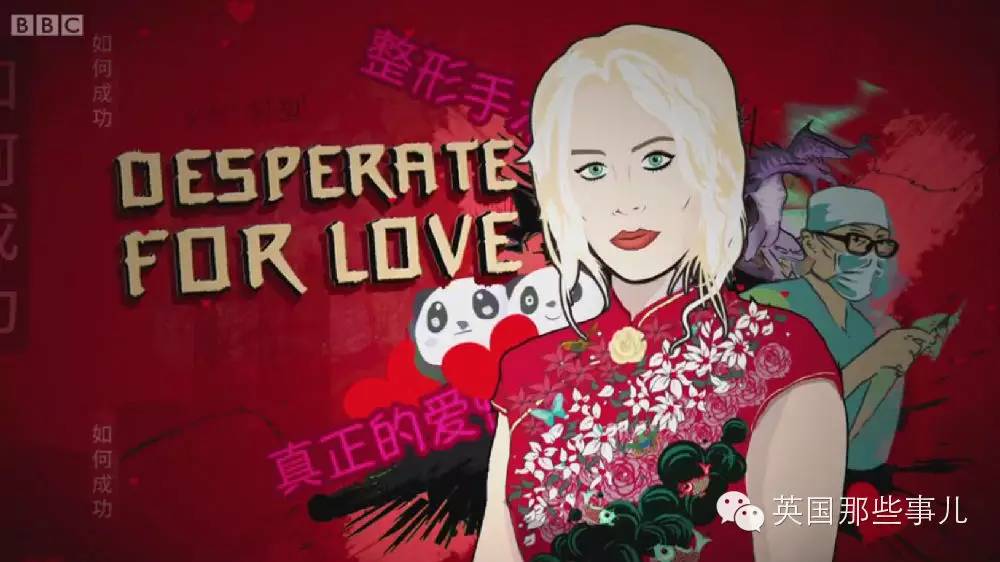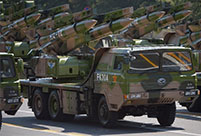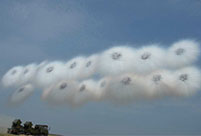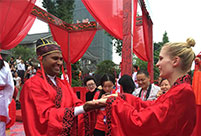


BEIJING, Sept. 12 -- A three-episode documentary aired by the BBC this month has again shown how Western media, even such an august institution, are near incapable of treating China with anything but contempt.
"Secrets of China" exposed such "secret" social issues as video game addiction, marriage pressure and the wealth gap as if these problems were uniquely, or even especially, "Chinese."
The BBC series peeped through the keyhole at the smallest slivers of Chinese society with a preset agenda: deep-rooted prejudice. The documentary merely rehashed the tired old stereotypes of lack of freedom and an obsequious populace, so long imposed on China by western media and completely unrecognizable to anyone who has actually spent any time in the country.
Flirtatiously promising the audience "a China you've never seen before," the reporter equipped herself with some rhetorical questions, suggested negative answers and jumped to non-sequiturs, thinly disguised as conclusions, especially in her opening remarks.
-- It's a country where young people are under pressure and have to obey the rules.
-- I'll discover why online gaming is becoming dangerously popular as a way to escape the pressures of the system.
-- Why are the Chinese are so obedient?
-- For me, marriage is all about choice. Here, it feels like an obligation.
These are the "secrets" of China that BBC wanted to lay bare to the audience.
What the documentary did most successfully was to seek "evidence" to justify spurious standpoints and reverse-engineer a causal link to China's "system" -- the highest possible journalistic standards!
Were this just the vlog of an English girl's personal travels, no one would really care very much, but the series was commissioned by BBC and many Chinese citizens found that hard to accept.
It's undeniable that some of these social phenomena do exist in China, and are widely regarded as problematic, but notions about marriage, for example, vary considerably between religions, ethnic groups and regions. Video game addiction and wealth gaps are common and widespread throughout the world, and they are not exactly "secrets".
From the interactions between the reporter and interviewees, it was easy to see that the crew were warmly received in China and allowed every convenience in their reporting. This was the "secret" that the series inadvertently exposed, in stark contrast to the claims of many Western nations that China is not a free country.
Impartiality wins trust for media institutions. Mud-slinging only mars their own reputation in this open, globalized era.
If institutions like the BBC equipped themselves with the vision of true journalists instead of such jaundiced eyes, the "secrets" exposed would be very different indeed.
 Models change clothes on street in Hangzhou
Models change clothes on street in Hangzhou Charming iron ladies in China's upcoming V-Day celebrations
Charming iron ladies in China's upcoming V-Day celebrations In pics: armaments displyed in massive military parade
In pics: armaments displyed in massive military parade Charming Chinese female soldiers
Charming Chinese female soldiers Volunteers required not taller than 5ft 5in
Volunteers required not taller than 5ft 5in  Czech pole dancing master teaches in Xi'an
Czech pole dancing master teaches in Xi'an Shocked! PLA smokescreen vehicle drill
Shocked! PLA smokescreen vehicle drill Foreigners experience tranditional Chinese wedding
Foreigners experience tranditional Chinese wedding Blind date with bikini girls in Nanjing
Blind date with bikini girls in Nanjing Living heritage
Living heritage More SOE reforms on the way
More SOE reforms on the way NYT shifts refugee crisis attention to China
NYT shifts refugee crisis attention to China Govt cracks down on editors accepting bribes to delete negative online reports
Govt cracks down on editors accepting bribes to delete negative online reportsDay|Week